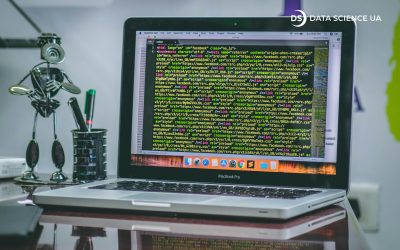Table of Contents:
- How is Data Science Used in Pharma?
- 15 Examples of Data Science in the Pharmaceutical Industry
- Enhanced Drug Trials through Data Science
- Exploring Opportunities in Pharmaceutical Data Science
- Future of Data Science in Pharmaceutical Industry
- Summary of Using Data Science in Pharmaceutical
- FAQ
Data Science in Pharmaceutical Industry – Top 15 Examples
Unlock the potential of data science for the pharmaceutical industry. Optimize drug discovery, development, and manufacturing for better patient outcomes – Data Science UA.
15 Use Cases For Data Science in Pharma
How is Data Science Used in Pharma?
Data science in the pharmaceutical industry is a game-changer, using big data, advanced analytics, machine learning, and artificial intelligence to make things work better. This mix of technologies is essential for improving this field, making everything from finding new drugs to taking care of patients easier and more efficient.
In this field, data science methods dig into big piles of data from electronic health records, patient medical devices, and clinical trials. They help people make decisions and make things run smoother. Data science projects in the pharmaceutical industry speed up finding new drugs by quickly spotting ones that might work using smart computer programs, which means drugs can get to people faster.
Moreover, pharma clinical data science really boosts clinical trials by guessing outcomes, handling risks, and making sure everything is done right. This makes things run better and helps make sure results are dependable. Personalized medicine strategies, created by carefully looking at data from clinical trials and electronic health records, are made to fit each patient’s special needs and genetic makeup.
Looking ahead, the future of data science in the pharmaceutical industry seems very bright. With more developments in artificial intelligence and machine learning on the horizon, things are set to get even better. As the industry continues to transform digitally, the need for data science in pharmaceuticals will grow. This means treatments will become more accurate, patient results will improve, and overall practices will become smoother. This shows how is data science used in pharmaceutical industry to make patient care better and treatments more effective.
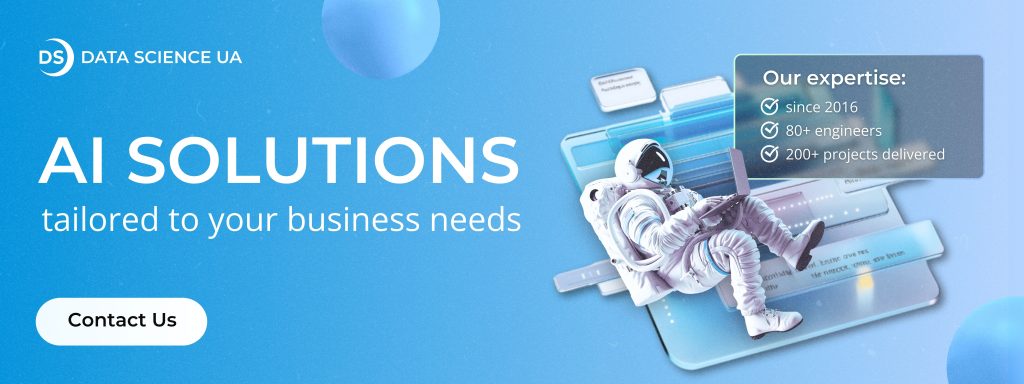
15 Examples of Data Science in the Pharmaceutical Industry
Customized Medication Strategies
Pharmaceutical companies are increasingly using data science to create personalized medicine based on individual genetic profiles. By analyzing genetic data from electronic health records and medical sensors, data science helps doctors tailor treatments, making them more effective and reducing side effects.
Machine learning, a core part of pharma data science, plays a crucial role in this process. It sifts through large amounts of data from clinical trials to predict the most effective treatments for each patient. This use of data science in pharma is making healthcare more precise and tailored to individual needs.
As technologies like AI and natural language processing advance, they will further improve how data science is used in the pharmaceutical industry. Data science projects in the pharmaceutical industry are changing how medicines are prescribed, making treatments more effective and safer by focusing on individual needs. This indicates where data science in the pharmaceutical industry is headed – with continued advancements likely to bring even greater improvements to healthcare and treatment customization.
Predicting Patient Flow/Demand
Data science is revolutionizing how hospitals and clinics manage their medication supplies. Through predictive analytics, a key aspect of data science in the pharmaceuticals, facilities can more accurately forecast the demand for specific medications. This method relies on analyzing data from electronic health records and patient medical sensors to predict the necessary quantities and types of medications required.
This capability is crucial for optimizing resource allocation and inventory management in healthcare settings. It helps ensure that medications are available when needed, preventing both shortages and surpluses. Machine learning models, an integral part which plays a significant role by analyzing historical data to identify trends that predict future needs.
For pharmaceutical companies, this predictive insight allows for improved production and distribution planning, ensuring that market demands are met efficiently and reducing waste. As machine learning algorithms and data science tools improve, the future of data science in the pharmaceutical industry looks set to further enhance these predictions, leading to better patient care and more streamlined operations.
Enhancing Drug Discovery and Development Processes
Machine learning is changing how pharmaceutical companies find and create new drugs. By using machine learning algorithms scientists can analyze large sets of chemical compounds much faster than before. This speeds up finding new drugs a lot, making it quicker to get them ready for sale.
These machine learning systems are important for finding new drug options fast and predicting how these drugs will act in different situations. This is a big step forward in pharma data science, making research and development faster and helping to make safer, better medicines.
Moreover, adding data science tools into clinical trials improves how we handle and understand data, making the research better. Thinking ahead, the role of data science in the pharmaceutical industry, especially with improvements in machine learning and artificial intelligence, will become even more important. This could change how we make drugs even more.
Enhanced Drug Trials through Data Science
Data science is changing how clinical trials happen in the pharmaceutical industry. By using machine learning and other data science tools, pharmaceutical companies can make these trials better and more accurate.
Using pharma data science, companies study lots of data from past trials and health records to guess what will happen in future trials. Machine learning helps go through this data, finding patterns that show how well a drug works and how patients react to it. This makes trials faster and safer, making patient care better.
Also, artificial intelligence is used to watch patient data during trials, making sure patients are safe and data is correct and on time.
As machine learning and AI in drug discovery get better, they will play a bigger role in research, making drug development smoother and treatments safer and better. Data science in the pharmaceutical industry, especially in trials, is making new ways to make drugs that work well for each patient. This change shows how important pharma clinical data science is in making data science projects in the pharmaceutical industry better, shaping the future of data science in healthcare towards more exact and personal solutions.
Genomic Analysis
Data science is revolutionizing genomic analysis in the pharmaceutical industry, helping researchers understand how genetic variations influence drug responses. This analysis is crucial for developing targeted and effective therapies, central to personalized medicine.
Machine learning models quickly process vast amounts of genomic data to identify patterns that predict drug efficacy and patient responses. This enables pharmaceutical companies to tailor treatments to individual genetic profiles, enhancing treatment effectiveness and reducing side effects.
As machine learning and artificial intelligence continue to advance, they are transforming drug development into a more precise and data-driven process. This integration of technology and genomics is not only improving how drugs are developed but is also paving the way for more personalized treatments, embodying how data science is used in the pharmaceutical industry.
In short, genomic analysis through data science pharmaceutical efforts is setting new standards in the pharmaceutical industry, enabling the creation of more effective, patient-specific therapies and marking a significant advancement in personalized medicine. This highlights the future of data science in the pharmaceutical industry as a pivotal factor in enhancing data science projects in the pharmaceutical industry for more precise and personalized healthcare solutions.
Tracking Patient Progress
In the world of pharmaceuticals, using data science is making it easier to keep an eye on how patients are doing through real-time data from wearable devices and health apps. These tools watch over patients all the time, so doctors can step in quickly if needed to help them get better.
By looking at the data from these devices, pharmaceutical companies can understand how patients are doing and improve their treatments. This not only helps patients but also makes research on treatments better, so they work even more effectively.
Looking ahead, keeping an eye on patient data in real-time will become even more important in healthcare. It helps doctors act fast when patients need help, getting us closer to giving each person the exact treatment they need. This shows how important using data science for the pharmaceutical industry is making healthcare better and coming up with smarter projects in this field.
Managing Safety and Risks
In the pharmaceutical world, data science acts as a guardian, helping to keep patients safe and minimize risks. It examines information and forecasts potential adverse effects and drug interactions before they occur, preventing costly errors for drug companies.
Using advanced technology like machine learning, drug companies can detect patterns in data and foresee potential issues. This proactive approach ensures patient safety and enables swift action when necessary.
Looking forward, data science will remain essential in ensuring drug safety, ensuring that each individual receives the appropriate medication with minimal risks. In simple terms, data science in the pharmaceutical field is reshaping how safety and risks are managed, benefiting everyone and improving pharmaceutical data science projects.
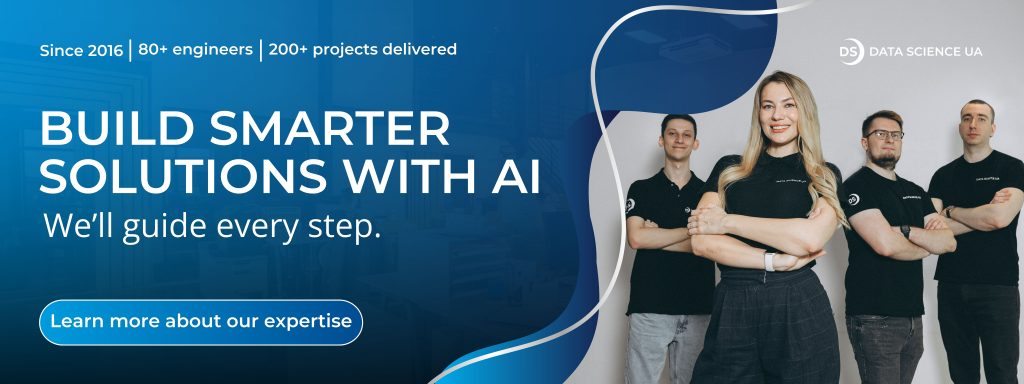
Operational Optimization
In pharmaceutical industry, optimization algorithms are improving operations like staffing and logistics. By analyzing data, machine learning helps streamline processes, saving time and money for pharmaceutical companies.
Looking ahead, data science will continue to enhance operational efficiency in the pharmaceutical industry, ensuring smoother workflows and better outcomes for patients.
Creating Data-Driven Decision Support Systems
In the pharmaceutical field, data science is playing a big role in building decision support systems. These systems analyze data to give healthcare workers helpful insights, so they can make better choices and enhance patient results.
By looking at lots of data, like electronic health records and patient sensor data, these systems provide timely guidance for treatment decisions. As technology gets better, these systems will keep improving, making sure patient care is based on the newest and most accurate information around.
Facilitating Digital Sales and Marketing Campaigns
In the pharmaceutical industry, data science is changing how sales and marketing work. By studying market trends and how people behave, pharmaceutical companies can adjust their plans to reach the right people better.
With data science tools like machine learning, companies can learn from many different places. This helps them make campaigns that feel personal to doctors and patients.
As things change, data science will keep pushing sales and marketing forward. It means companies can keep up with what people want and how things are changing in the market.
Medical Image Analysis
In the field of pharmaceutical data science, analyzing medical images is changing how doctors diagnose illnesses. With advanced methods like machine learning, medical images are studied faster and more accurately, which helps patients get better care.
As technology gets better, outsource image processing services will keep improving. This means doctors will have even better tools to diagnose and treat illnesses in the future.
Accessing Real-Time Information through Health Apps
Health apps use data science to give patients and doctors real-time updates on health conditions and treatment progress. By analyzing data from medical sensors and health records, these apps provide convenient monitoring for patients and timely updates for doctors, improving overall patient care.
Minimizing Drug Side Effects and Adverse Reactions
In the pharmaceutical world, data science is super important for reducing medicine side effects. Using data-driven methods, companies can spot and deal with bad reactions early, keeping patients safe.
By looking at data from electronic health records and tests, machine learning helps find potential problems. This smart way of working doesn’t just make patients safer, it also helps companies follow the rules better, making healthcare better overall. This shows how vital data science is in the pharmaceutical industry for keeping patients safe and improving the way medicines are made.
Streamlining Clinical Trials
In the pharmaceutical field, data science is changing how clinical trials work, making them quicker and cheaper. By looking at data from many places, like electronic records, machine learning helps make trials better and cheaper, while still following the rules. This helps patients by getting new treatments out faster, showing how important data science is in the pharmaceutical industry for improving healthcare.
Optimizing the Supply Chain
Data science in pharmaceutical industry is crucial for minimizing drug side effects. By employing data-driven approaches, companies can detect and address adverse reactions early, thus ensuring patient safety.
Through the analysis of data from electronic health records and clinical trials, machine learning aids in identifying potential issues. This proactive approach not only improves patient safety but also enhances regulatory compliance, ultimately enhancing overall healthcare quality. This underscores the importance of data science in the pharmaceutical industry for safeguarding patient well-being and fostering advancements in pharma clinical data science for safer and more effective medications.
Applying Predictive Analytics Models in Pharma
Pharmaceutical companies are increasingly using predictive analytics to make smarter decisions. These models forecast things by ml development company like drug interactions, patient outcomes, and market trends, helping companies stay ahead. By analyzing large amounts of data, they can predict challenges and optimize processes, ultimately driving innovation and success in the industry.
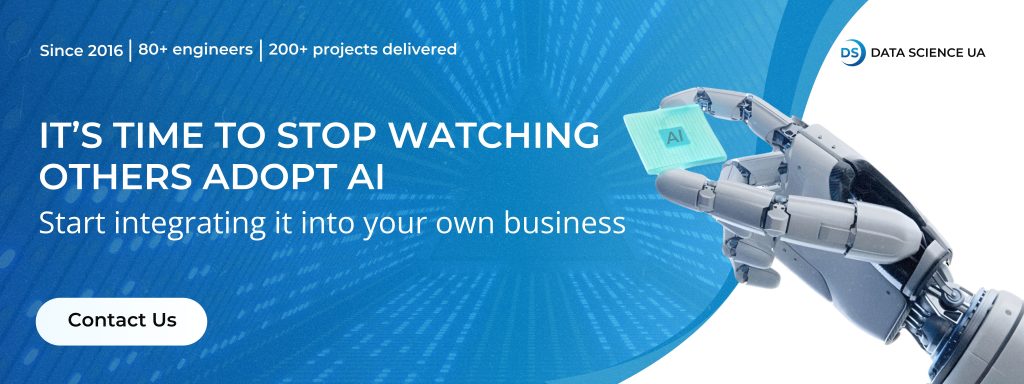
Exploring Opportunities in Pharmaceutical Data Science
In the pharmaceutical world, there’s exciting potential in using IoT devices and real-time data collection. This allows for ongoing monitoring of patients’ health, leading to better treatment adjustments and outcomes. By examining data from clinical trials and patient feedback in real-time, drug development processes can be improved, making it faster to introduce new treatments to the market. As the industry progresses, there’s significant promise in incorporating artificial intelligence to gather valuable insights from data encouraging innovative data science projects in pharmaceutical industry.
Future of Data Science in Pharmaceutical Industry
As technology advances, data science becomes more important in pharmaceutical research and operations. It helps solve complicated health issues by using tools to analyze large sets of data, like clinical trials and health records. This speeds up the creation of new treatments.
In operations, data science makes things more efficient by cutting costs. Machine learning and AI in pharma make supply chain management and patient care smoother.
In the future, data science will focus on understanding data better, leading to more innovation in pharmaceutical practices. Overall, data science holds the promise of a brighter future for the industry, improving patient outcomes and advancing medicine, thereby shaping the future of data science in pharmaceutical industry and driving impactful data science pharmaceutical initiatives.
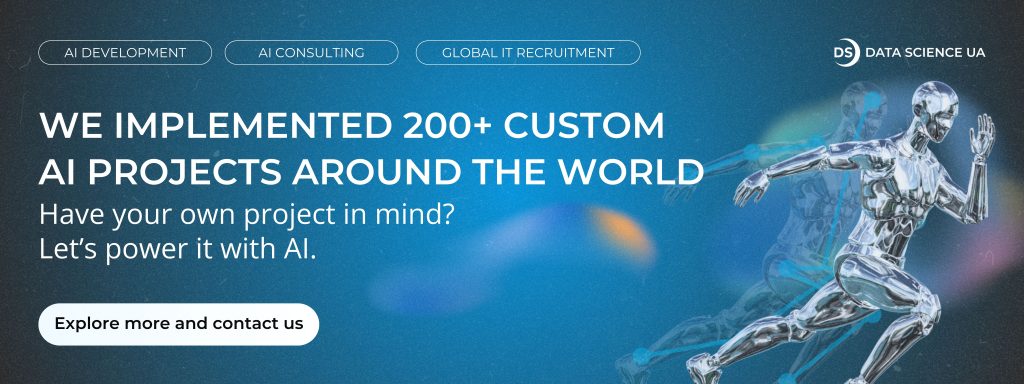
Summary of Using Data Science in Pharmaceutical
Data science is making big changes in the pharmaceutical industry, improving everything from research and developing new drugs to patient care and managing drug supplies.
In research and development, data science in pharma uses tools like machine learning and artificial intelligence to help find new drugs and make clinical trials better. By studying a lot of data, pharma data science helps companies quickly identify promising new drugs and make the testing process more efficient, speeding up the delivery of new treatments to patients.
In patient care data science is important because it uses data from medical sensors and health records to tailor treatments to each patient and track their progress closely. This way, doctors can give more personalized care and act quickly to improve patients’ health.
In managing the supply of drugs, pharma clinical data science helps by predicting how much medicine will be needed, managing stock better, and making sure medicines are delivered on time. This reduces costs and waste and ensures that patients have access to the medicines they need when they need them.
Looking to the future, the role of data science in the pharmaceutical industry is set to grow. Natural language processing services will help make better decisions and continue to improve how the industry works.
Overall, data science projects in the pharmaceutical industry are making it more efficient, innovative, and effective at delivering better care to patients, showing how crucial data science is for advancing the industry.
FAQ
What are the responsibilities of a data analyst in the pharmaceutical industry?
Data analysts service in pharmaceuticals have important jobs. They help design and manage data systems. They look at data to help make decisions and make sure the data is correct and follows rules.
How beneficial is data science in medicine?
Data science is really helpful in medicine. It makes diagnoses more accurate, customizes treatment plans for each person, and makes healthcare work better overall.
In what ways can data science optimize drug manufacturing processes?
Data science helps make drugs better. It predicts when machines might need fixing, makes sure the drugs are good quality, and plans when to make them. This saves money and makes making drugs easier.



